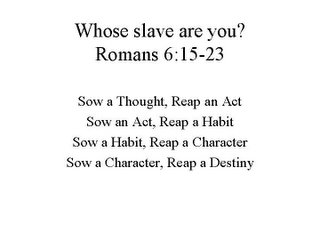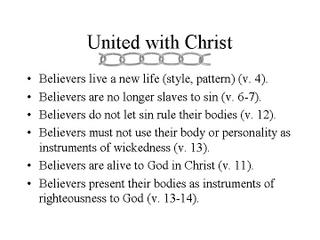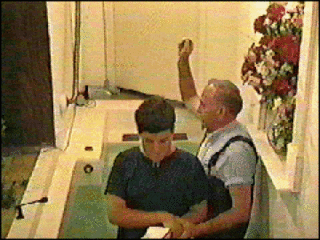
For this week’s LifeWay lesson “What about God’s Grace?” from
Romans 5:12-21, I’m still noodling on the issue of defining grace, which we need. You can use this post to construct Step 2 in a lesson plan. As I mentioned before, Step 1 explains the “what”. Step 2 explains the “so-what”. That is, we understand grace in Step 1, so in Step 2, we make it relevant. Use the picture (adapted from a
John Berry illustration) to illustrate how we can’t get to the cross without God's grace.
Following are definitions of grace offered by
Rogma, which also offers
commentary with homework on Romans 5:12-21.
“Grace is the unhindered, wonderful and immeasurable love of God, poured out upon us in an infinite variety of ways without limit. Not according to what we deserve but according to His limitless heart of love. Grace is the free, unmerited favor of God in Christ Jesus. FREE – it must be exercised or bestowed without the possibility of anything being offered in exchange. Otherwise, it would simply be barter or an exchange (Romans 11:6). UNMERITED – God’s grace is poured out upon us in utter disregard of the extent of our sins. No one has any merit to offer God in payment for His grace. To recognize merit is to nullify grace.”
But Paul says is
Romans 5:20, “grace increased,” but in what manner does it increase? God does not change, or “increase”, but grace is from God and it increases, like a “reckoning”, or a “consideration”, or is it like a “help” or an “enabling”? The former is on the part of God, and the later has an effect in man. Moreover, it’s not the “gift” referred to by Paul in
Romans 5:15, since that gift is clearly righteousness (see
Romans 5:17).
Also,
Romans 5:21 makes clear that grace “reigns” to bring “eternal life”. Men are subject to the rule of “grace and life” in contrast to the rule of “sin and death.” The rule of sin (our wrongness) and death came thru Adam and increased (see Romans 5:20). Sin and death comes from man. By contrast, the rule of grace and life came thru Jesus Christ and increased (
Romans 5:15). Grace and life comes from God.
According to
Romans 3:24 we are justified by grace (from God) and by faith (
Romans 3:28), which is also from God (
Ephesians 2:8-9). Our justification comes from God entirely and completely. Jesus Christ suffered death and separation from God to make righteousness possible. By the grace of God those who believe by faith that Christ died in their place are justified.
Clearly then, grace is from God and is needed by us. Regardless of how we define it—God’s favor, or kindness, or goodness, or love, it teaches us that God is absolutely amazing. We cannot grasp a nature like His that changes not and is not bound by time, but yet somehow can consider unrighteous, finite men as righteous before Him. Thank you Jesus for your vicarious death and resurrected life!























